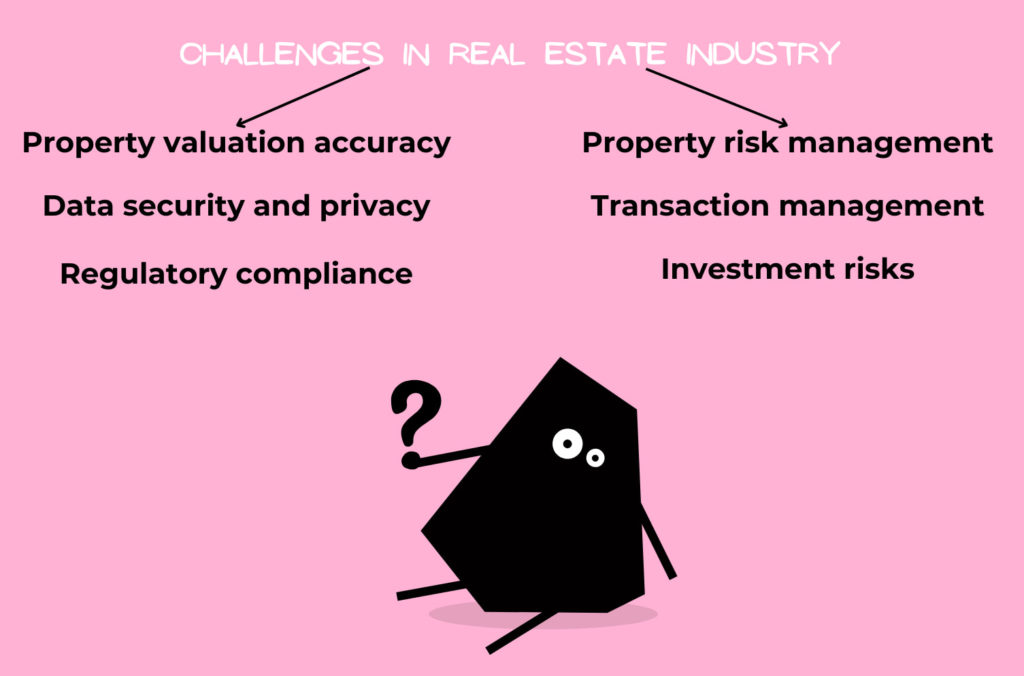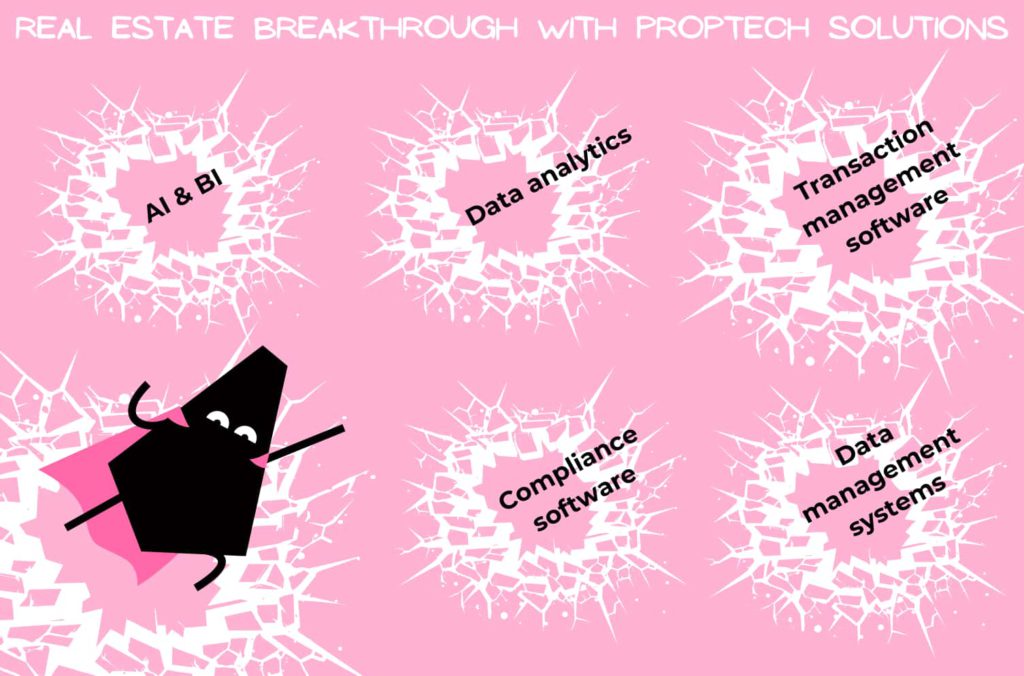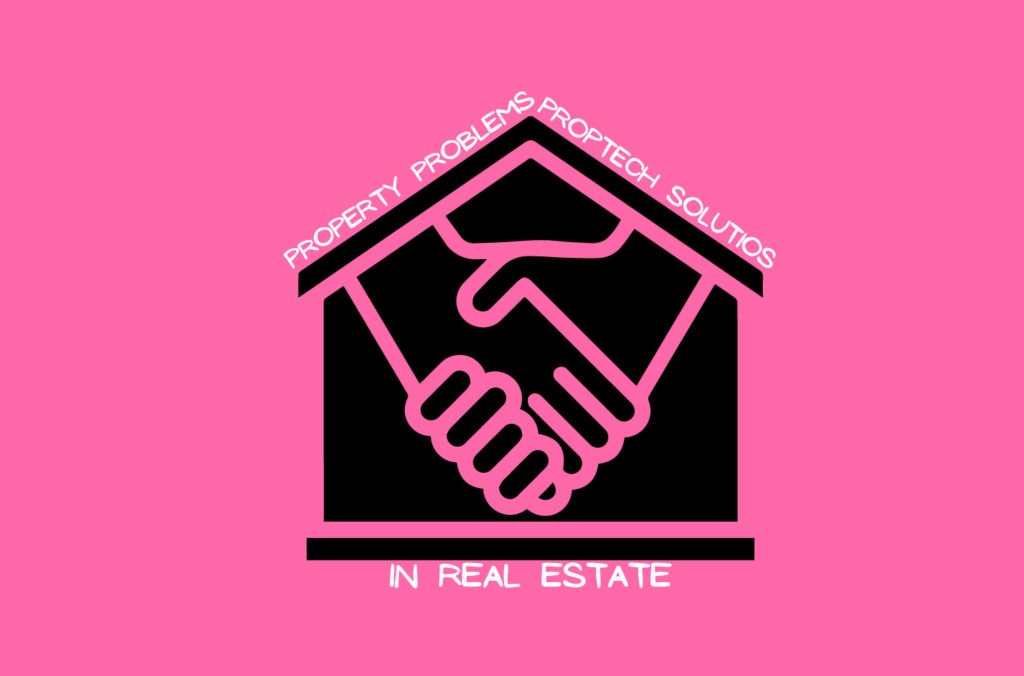Common real estate problems and their solutions

Everyone wants things to go smoothly. However, something is always happening somewhere that isn’t quite right. The real estate industry is not an exception. Despite its potential for prosperity, the landscape of real estate is dotted with challenges that can complicate transactions, investments, and property management. Understanding and addressing these challenges is paramount for anyone involved in the real estate sector. Whether you’re a seasoned investor, a first-time homebuyer, or a property developer, the journey through real estate is fraught with complexities that demand attention, strategic thinking, and innovative solutions.
Some interesting figures: According to Gitnux Marketdata Report 2024, by 2025, the global proptech market is predicted to reach over $20 billion; 65% of property managers said digital solutions significantly reduced costs; more than 50% of real estate firms say they’re using property technology; 86 percent of real estate agencies plan to spend more resources on proptech in coming years; most property professionals — 92 percent — said proptech will have a positive impact on the real estate industry.

As we see, property technology is the answer to real estate problems. In an era dominated by technological advancements, harnessing the power of data analytics, transaction management software, and other digital tools becomes not just an option but a necessity. These innovations, whether it is AI transformation or another one, are not merely about keeping up with trends; they are the keys to unlocking efficiency, transparency, and informed decision-making in an industry where every detail matters. In this article, we’ll uncover the role that property technology solutions play in reshaping the challenges in the real estate industry.
What are real estate challenges there?
The real estate industry faces a series of challenges that, when left unaddressed, can impede efficiency, increase risks, and hinder overall progress. So, let’s run through them first.

Real estate transaction management
This issue stems from the numerous stakeholders, extensive paperwork, and critical timelines associated with real estate transactions. Effective communication and collaboration among various stakeholders, including buyers, sellers, agents, and legal professionals, are essential for successful real estate transactions.
Property valuation accuracy
Inaccurate property valuations can lead to disputes, financial losses, and hinder the success of real estate transactions. This issue is about the difficulty of accurately determining the monetary worth of a property and arises from the subjective nature of property valuation, influenced by factors such as location, market trends, property condition, and unique features. Appraisers often face the task of reconciling these elements to arrive at a fair and precise valuation.
Property risk management
Properties come with inherent risks, such as environmental hazards, legal complications, and market fluctuations. Failing to address these risks can have severe consequences. It is characterized by potential threats that may affect the property’s value, marketability, or long-term viability.
Real estate investment risks
Real estate investment is not without risks, and market trends can change rapidly. Property investment risks range from economic downturns affecting property values to unexpected maintenance costs impacting profitability. Staying informed about these trends is crucial for making sound investment decisions.
Data security and privacy concerns
The real estate industry deals with sensitive information, including personal details, financial data, and legal documents. Ensuring the security and privacy of this data is paramount. Moreover, with the increased adoption of digital platforms and cloud-based systems for transactions and data storage, the challenge of data security and privacy concerns has become more pronounced.
Real estate regulatory compliance
In tandem with data security concerns, navigating through complex and ever-changing real estate regulations can be a significant challenge. Non-compliance can lead to legal issues and financial penalties. Balancing innovation with regulatory compliance is a delicate yet indispensable aspect.
How can proptech solutions address real estate problems?

Transaction management software
Real estate transactions, historically laden with paperwork and complexities, are now undergoing a digital revolution. Transaction management software is integral to the industry, providing a streamlined and efficient alternative to traditional methods. Electronic signatures, secure document-sharing platforms, and automated workflows are empowering professionals to conduct transactions with unprecedented speed and accuracy. Transaction platforms and tools do the trick, holding all the real estate participants on the same page.
Property valuation reports with business intelligence (BI) and artificial intelligence (AI)
Leveraging BI and AI in property valuation can significantly enhance property valuation accuracy. AI algorithms process vast datasets, enabling more accurate property valuations based on real-time market trends, comparable sales, and various other factors. This not only enhances the precision of property assessments but also provides valuable insights for investors and stakeholders to make informed decisions.
Real estate data analytics and real estate investment risk analysis
Proptech leverages big data analytics to provide actionable insights into market trends, investment opportunities, and risk assessments. By analyzing vast datasets and with the help of predictive analytics, real estate professionals can make informed decisions, optimize investment portfolios, and adapt strategies based on real-time market dynamics. This approach can cover both property management and investment risks.
Speaking of property management further, proptech solutions can streamline property management tasks, such as maintenance, rent collection, and tenant communication. Automated property management platforms may leverage technologies like cloud computing, IoT (Internet of Things), and mobile apps to enhance efficiency.
Compliance software and data management systems
Utilizing regulatory compliance software that keeps track of local and national real estate regulations will work for you. This ensures that real estate professionals stay informed about legal requirements and adhere to the latest compliance standards.
Implementing secure data management systems with encryption protocols can safeguard sensitive information. Additionally, adhering to industry compliance standards and regulations helps in maintaining data privacy and mitigating the risk of breaches.
Digital transformation in real estate
Connected to real estate problems and solutions, let’s have a few more words about digital transformation in real estate and let’s take a look at another couple of innovations here.
- Virtual Reality (VR) and Augmented Reality (AR): VR and AR technologies are transforming the way properties are showcased. Virtual property tours and augmented reality applications allow potential buyers and tenants to explore properties remotely, providing a realistic and immersive experience. This not only expands the reach of property marketing but also accelerates decision-making processes.
- Blockchain technology: Blockchain, the technology behind cryptocurrencies, is making waves in real estate by enhancing transparency, security, and trust in transactions. Smart contracts, powered by blockchain, automate and enforce contract terms, reducing the risk of fraud and ensuring that all stakeholders have access to an immutable and transparent record of property transactions.
- Real estate marketplaces and listing portals: Online real estate marketplaces, platforms, and listing portals have transformed the way properties are bought and sold. These platforms often use advanced algorithms, data analytics, and virtual tours to connect buyers, sellers, and real estate professionals.

Conclusion
In conclusion, proptech solutions are not just solving existing challenges in real estate; they are redefining the way the industry operates. As professionals and investors increasingly adopt these technologies, the potential for more transparent, efficient, and secure real estate transactions becomes a reality. The proptech revolution is underway, and those who embrace it are poised to thrive in the evolving landscape of real estate.
In this transformation, you can even impact your target audience through advertising analytics, make creative images, texts through generative AI, or analyze customer feedback with a sentiment analysis tool. From the adoption of electronic signatures and automated workflows in transaction management to the incorporation of artificial intelligence and data analytics for more accurate property valuations, you can strengthen the real estate lifecycle with technology. And if you have what to discuss more to that end, just contact us. We are here for you. See you soon!






